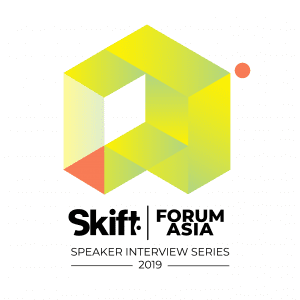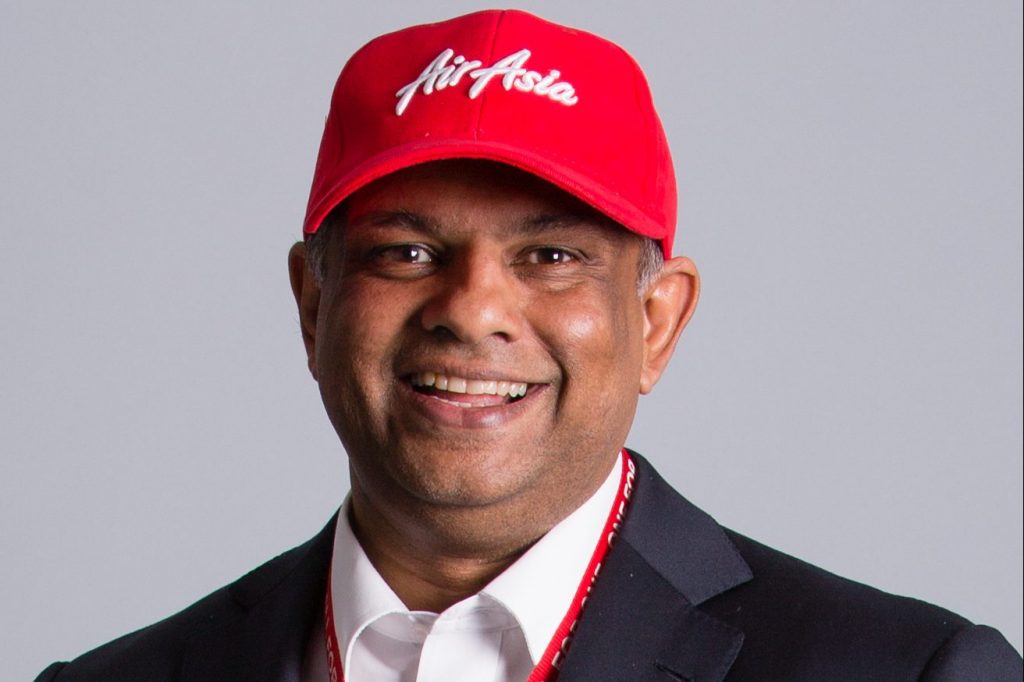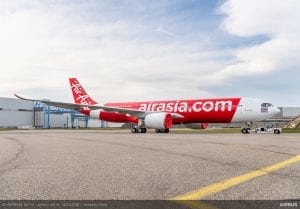Skift Take
Who’s afraid of shifting the business model? Not Tony Fernandes, who transformed Asia’s airline industry and could take huge credit for the rise of Asian travel in the last two decades. Will his next transformation be as huge?
Hundreds of the travel industry’s most forward-thinking executives will gather for our first Skift Forum Asia in Singapore on May 27. In just a few years, Skift’s Forums — the largest creative business gatherings in the global travel industry — have become what media, speakers, and attendees have called the “TED Talks of travel.”
 Focusing on top marketers, strategists, and technologists in the APAC region who are defining the future of travel, Skift Forum Asia 2019 will take place at Equarius Hotel in Singapore.The Forum will feature speakers including CEOs and top executives from AirAsia, Booking.com, Genting Cruise Lines, Jumeirah, Oyo, Rakuten, and many more. The following is part of a series of posts highlighting the speakers and touching on issues of concern in Asia and beyond.
Focusing on top marketers, strategists, and technologists in the APAC region who are defining the future of travel, Skift Forum Asia 2019 will take place at Equarius Hotel in Singapore.The Forum will feature speakers including CEOs and top executives from AirAsia, Booking.com, Genting Cruise Lines, Jumeirah, Oyo, Rakuten, and many more. The following is part of a series of posts highlighting the speakers and touching on issues of concern in Asia and beyond.
After 18 years of disrupting the Asian airline industry with his “Now Everyone Can Fly” chant, Tony Fernandes is not yet done. In fact, the group CEO of AirAsia seems to have a new spurt of energy to raise a ruckus again, although it seems hard to imagine what more disruption in low-cost carriers (LCCs) is possible, given that the divide between LCCs and legacies has narrowed so much over the years.
Fernandes will be speaking at the inaugural Skift Forum Asia on May 27 in Singapore. Charismatic and characteristically outspoken, Fernandes is part of a stellar lineup of speakers that includes United Airlines president Scott Kirby, Singapore Airlines CEO Goh Choon Phong, and movers and shakers in other sectors of the industry.
The theme of the first-ever Skift Asia Forum is “The future of travel is being tested in Asia.” You will not want to miss hearing what forward-thinking Fernandes has to say about the opportunities in the airline industry and how AirAsia will continue to be a game-changer — yes, even after 18 years.
In this sneak preview, he gives a glimpse of how he plans to reinvent low-cost, long-haul carriers, which everyone knows is a tough nut to crack; about the opportunities in ancillary revenues from sources such as cargo; and from the huge new area of online travel bookings.
Skift: The difference between legacy and low-cost carriers (LCC) has narrowed. Most legacies have an LCC product. So what is the future of LCCs, and of low-cost, long-haul?
Tony Fernandes: On the future of low-cost, long-haul, it’s important to note that AirAsia X pioneered the model. But in recent times, we have probably been more of a six- or seven-hour medium-haul airline.
In the next few months, we are going to see our first Airbus A330neo join the fleet, which will really change the game. [AirAsia recently unveiled images of its first-ever A330neo as it came out of the paint shop in Toulouse.] Having the neo will give us a lot more options, a lot more destinations — Europe, for example. On top of that is fuel savings and better customer experience.
Long-haul [flying] provides us with more opportunities to capture ancillary revenue. The key thing for us is making sure we’re prepared and ready to grasp the opportunity. We’re making a number of technology investments to help us do that.
I think low-cost long-haul is sustainable with the new equipment, and we’ve got some exciting times to look forward to.
Skift: Talking of ancillary revenue, is that why your next disruption is in travel e-commerce, where gains need not be incremental?
Fernandes: We were the first in the region to sell tickets online, so talking of travel and lifestyle, this is really a natural fit. But again, it’s not the first time we’ve tapped into this. We had our partnership with Expedia, which we sold off, and made good profits.
Now, using our own platform, we have a really fantastic opportunity. We have 40 million unique visitors a month, and we will look beyond just a flight booking and see what other products and services we can offer — hotels, activities, online shopping, the lot.
Incremental, we’d prefer to call it scaling up, because we already have the customers. Other platforms would spend a fortune acquiring them.
Skift: Airlines make less than $9 net profit per departing passenger in 2018, says IATA. What’s your target, and what are the key moves to achieve it?
Fernandes: I’m confident we were above that average for 2018.
The beauty about what we’re doing at AirAsia though is around creating this platform-type business, whereby net profit per passenger is not from just a base fare and ancillary products like seats and meals, but also things like what we’ve done with airasia.com, which has become a one-stop for hotels, packages, and deals, not to mention our e-commerce platforms OurShop and Rokki [Wi-Fi on board].
Skift: How much higher can margins be for your platform play airasia.com, BigPay, and moving SME retail cargo?
Fernandes: I love competition, and like we’ve done in terms of disrupting the full-service model, I think we can do the same for our digital and fintech businesses.
Our guests tell us they want choice and they enjoy the experience they have with us. So why not take on the Travelokas of the world or the big banks that have long dominated the payments industry?
In terms of margins, we can be much more competitive because what we offer is part of a much bigger ecosystem, and it complements what we’re doing already, which is selling flights.
On the logistics front, RedCargo Logistics led by Pete [Chareonwongsak] has a lot to look forward to. We’re going to give people and businesses, especially smaller enterprises, the ability to move goods between ASEAN on our flights seamlessly. That’s something this region has not seen before.
Skift: How do you change the mindset of people at AirAsia that you’re a tech player, not an airline?
Fernandes: How do you convince the public that a music man can run an airline? You can’t. You just do it.
I personally don’t think changing people’s mindset is going to be a challenge, as AirAsia has always been a tech company. In 2001, we started selling flights online. We were the first airline in the region to do so. We’ve introduced a lot of innovations since, and we’re now ramping it up.
We’ve also been making a number of changes internally to make sure we’re on the right track. Aireen [Omar], my deputy for technology and digital, has built a great team to support what we want to do. Bringing in new talent and educating our Allstars is part of that.
The Daily Newsletter
Our daily coverage of the global travel industry. Written by editors and analysts from across Skift’s brands.
Have a confidential tip for Skift? Get in touch
Tags: airasia, sfa2019, skift forum asia, tony fernandes
Photo credit: Tony Fernandes is shifting AirAsia’s business model. Air Asia Group

